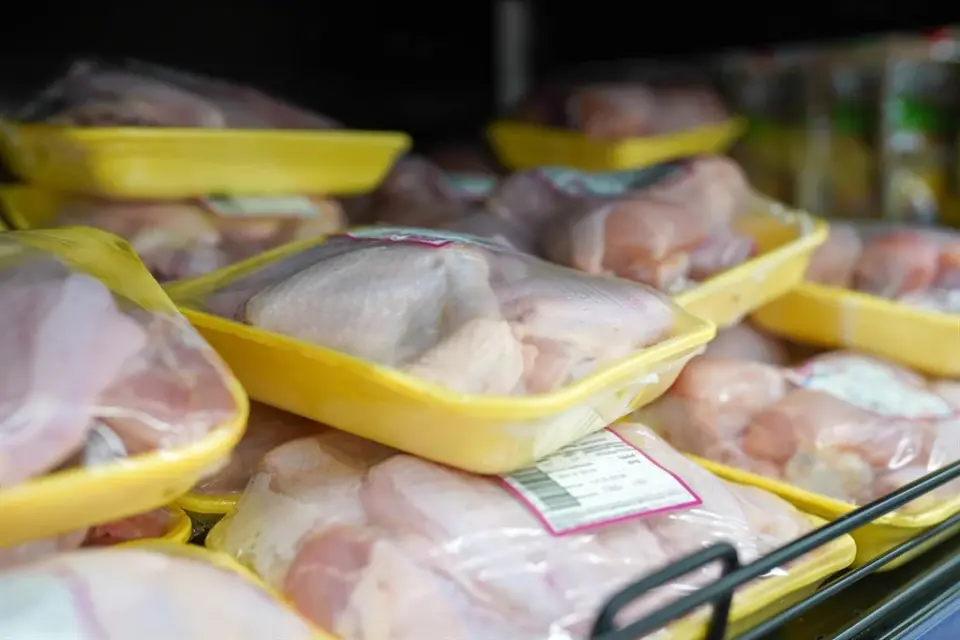A 12-month suspension on anti-dumping duties for poultry from five countries has ended, which has raised warnings that consumers should brace for massive price hikes for the protein.
Minister of Trade, Industry and Competition Ebrahim Patel on Tuesday issued a notice indicating that with the suspension period ending, the anti-dumping duties would become effective.
The duties are based on recommendations from the International Trade Administration Commission (ITAC) of South Africa. This followed an investigation into allegations of dumping “frozen bone-in” chicken portions, like leg quarters, imported from Brazil, Denmark, Ireland, Poland and Spain.
ITAC found that the poultry was indeed being dumped into the Southern African Customs Union (SACU) market, of which South Africa is part.
Patel approved the commission’s recommendation to impose anti-dumping duties – which would be as high as 265% on imports from Brazil (additional to an existing 62% tariff), 67.4% on Denmark, 85.8% on Spain, 96.9% on Poland and 158.4% on Ireland.
But he decided to delay the implementation (from August 2022) by a year, given the impact it would have on consumers at the time.
He reiterated this in a notice issued on Tuesday this week, which also explains why the 12-month suspension was implemented.
“The purpose of this notice is to advise all interested parties that the 12-month period is ending, and in the circumstances, the minister is of the view that the anti-dumping duties should now become effective,” the notice read.
Patel has asked Finance Minister Enoch Godongwana to now give effect to the anti-dumping duties, which requires an amendment to the Customs and Excise Act.
Patel also plans to ask the Competition Commission to monitor the prices of the frozen bone-in portions in case there are price increases by local producers seeking to take advantage of the anti-dumping duties. Patel may then ask Godongwana to again suspend the duties for a period.
A statement on ITAC’s website also cites Patel warning against local producers unjustifiably hiking prices. According to Patel:
In the lead-up to the suspension lapsing, Hume International, a food distributor which imported roughly 60 000 tonnes of chicken in 2022, warned that this could result in reduced competition in the local market and chicken prices rising “significantly” higher.
“Frankly, the threat of dumping seems vastly overstated, as chicken is the most expensive it’s been on the import side for a long time. Additional duties will place an even greater burden on cash-strapped consumers,” Fred Hume, managing director of Hume International, said in May.
The Association of Meat Importers and Exporters (AMIE) South Africa in July also made calls for the government to reconsider the implementation of the anti-dumping duties – amid a high inflationary environment, the ongoing Russia-Ukraine war, and the recent bird flu outbreak.
“…Imposing ADDs (anti-dumping duties) would have a profoundly negative impact on consumers and on food security in South Africa,” the organisation said in a statement.
“The decrease in purchasing power of the South African consumer will only be exacerbated by an additional tariff imposed on chicken – the most widely consumed meat protein in the country,” AMIE added. The organisation sees the duties ultimately placing “additional financial strain” on low-income households who rely “heavily” on chicken as a primary source of protein.
It noted that the poultry industry, which is already facing challenges to a bird flu outbreak, will experience more setbacks that could result in job losses and reduced investment.
But the SA Poultry Association (SAPA) is of the view the duties will have a “negligible” impact on retail chicken prices, based on a study it commissioned.
In a statement issued in July, SAPA general manager Izaak Breitenbach said that load shedding has a bigger effect on the retail price of poultry than the anti-dumping duties.
“… Load shedding adds several rands to the price of locally produced poultry, where anti-dumping duty adds a few cents on selected imports,” he said.
“And it’s these anti-dumping duties that allow us to grow the industry, to invest more, to create more jobs – we’ve created more than 4 600 jobs throughout the value chain since Covid, and we’ve invested over R2.1 billion in the local industry, with another R600 million coming online by the end of 2024.
“But we’re only able to do all these things as signatories to a masterplan that encourages the use of trade measures that would defend the local industry from predatory trade practices, like dumping,” Breitenbach added.
“If we need immediate relief for our most vulnerable, we highly recommend scrapping VAT on selected poultry products – the load shedding tax is already too much. It is evident that the removal of anti-dumping duties will have little to no impact on the poorest of the poor but will jeopardise the businesses of integrated producers and emerging poultry farmers alike,” he said.
Industry is awaiting a final sign-off on the duties.



